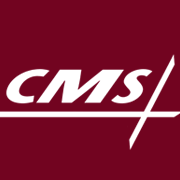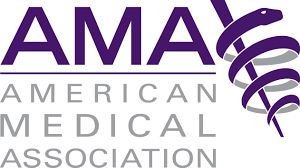Medicare Access and CHIP Reauthorization Act (MACRA)
See the following -
Modernizing Medicine Unveils Population Health Platform and Apple Watch Application at Annual User Conference
 Specialty-specific health information technology company Modernizing Medicine, Inc. announced major technological advancements to its intuitive suite of products and services at the company’s third annual user conference, MOMENTUM. An enhancement to the company’s specialty-specific electronic health record (EHR) system, EMA, and Practice Management system, Analytics is designed to give physicians near real-time population health data to help support the transition to value-based healthcare...
Specialty-specific health information technology company Modernizing Medicine, Inc. announced major technological advancements to its intuitive suite of products and services at the company’s third annual user conference, MOMENTUM. An enhancement to the company’s specialty-specific electronic health record (EHR) system, EMA, and Practice Management system, Analytics is designed to give physicians near real-time population health data to help support the transition to value-based healthcare...
- Login to post comments
An Alternative Proposal for Certification
 Some have suggested that my comments over the past few months about the Meaningful Use program, MACRA/MIPS, and Certification imply that we should just give up - throw out the baby with the bath water. That’s not what I’ve written.
Some have suggested that my comments over the past few months about the Meaningful Use program, MACRA/MIPS, and Certification imply that we should just give up - throw out the baby with the bath water. That’s not what I’ve written.
Here’s a clarification. I believe MACRA/MIPS is the right trajectory - create a set of desirable policy outcomes, then enable clinicians to choose technology, quality measures, and process improvements that are relevant to their practice...
- Login to post comments
AVIA Names Andy Slavitt as Senior Advisor
 AVIA, the nation's leading network for health systems seeking to innovate and transform, announced that Andy Slavitt will join as a Senior Advisor. Slavitt brings to AVIA over two decades of private and public sector leadership in healthcare and technology. Slavitt previously served as the Acting Administrator for the Centers for Medicare & Medicaid Services (CMS) at the U.S. Department of Health and Human Services under President Obama. There, he oversaw the Medicare and Medicaid programs and the implementation of the Affordable Care Act’s health insurance marketplace...
AVIA, the nation's leading network for health systems seeking to innovate and transform, announced that Andy Slavitt will join as a Senior Advisor. Slavitt brings to AVIA over two decades of private and public sector leadership in healthcare and technology. Slavitt previously served as the Acting Administrator for the Centers for Medicare & Medicaid Services (CMS) at the U.S. Department of Health and Human Services under President Obama. There, he oversaw the Medicare and Medicaid programs and the implementation of the Affordable Care Act’s health insurance marketplace...
- Login to post comments
Breaking Down the Role of Patient Engagement in Meaningful Use
 Patient engagement plays a great role in meaningful use, despite much industry debate and conflicting interests. Patient engagement is not just a new patient-centered care philosophy. For providers and hospitals participating in the EHR Incentive Programs, patient engagement is a critical part of receiving incentive payments. Between the different stages of meaningful use and new rule proposals amending the program, the requirements for patient engagement are not always clear.
Patient engagement plays a great role in meaningful use, despite much industry debate and conflicting interests. Patient engagement is not just a new patient-centered care philosophy. For providers and hospitals participating in the EHR Incentive Programs, patient engagement is a critical part of receiving incentive payments. Between the different stages of meaningful use and new rule proposals amending the program, the requirements for patient engagement are not always clear.
- Login to post comments
Ensuring Physician EHR Use Doesn’t Lead to Physician Burnout
With the entire healthcare industry undergoing tremendous amounts of change — from how care is coordinated and delivered to how providers are reimbursed for that care — there are likely to be side effects. One the head of the American Medical Association (AMA) is targeting is the matter of physician burnout tied to providers having to balance the day-to-day realities of patient care with federal and state mandates regulating aspects of that care such physician EHR use and clinical quality reporting...
- Login to post comments
Halamka's Report on the Joint HIT Standards and Policy Committee Meeting
 All the members of the ONC Federal Advisory Committees met in Washington to review delivery system reform and the Interoperability Roadmap. We began the meeting with a thank you to Jodi Daniel, who will be leaving ONC after 10 years of service. Elizabeth Holland presented a data update on the Meaningful Use program. She noted that 2015 attestation will open Jan 4, 2016-Feb 29, 2016. The Meaningful Use Stage 2 final rule has not yet been released (but rumor suggests it may be released later today). Next, Karen DeSalvo presented a Delivery System Reform Update setting the context for the kinds of interoperability needed in the future as fee for service is replaced by population-based payment.
All the members of the ONC Federal Advisory Committees met in Washington to review delivery system reform and the Interoperability Roadmap. We began the meeting with a thank you to Jodi Daniel, who will be leaving ONC after 10 years of service. Elizabeth Holland presented a data update on the Meaningful Use program. She noted that 2015 attestation will open Jan 4, 2016-Feb 29, 2016. The Meaningful Use Stage 2 final rule has not yet been released (but rumor suggests it may be released later today). Next, Karen DeSalvo presented a Delivery System Reform Update setting the context for the kinds of interoperability needed in the future as fee for service is replaced by population-based payment.
- Login to post comments
How to Fix the EHR Mess We’re In
Computers, more specifically, electronic health records (EHRs), will someday revolutionize the practice of medicine. In fact, successful computerization of medical care is the most critical step necessary to transform the American health care system from its current sorry state to the 21st-century system of our dreams. It is ironic, then, that today EHRs represent one of the worst problems plaguing medical professionals. At this point, many physicians would say that EHRs have created more problems than they have fixed. The most important question is how do we get from where we are to where we need to be?...
- Login to post comments
Missing from MACRA: 2 Meaningful Use millstones
 Physicians are now free from reporting on two major Meaningful Use requirements, but some doctors may not be aware of this long-sought change that became effective Jan 1. While it is hard to say how many physicians are in the dark about the change, there are anecdotal reports that some doctors don’t know that the Medicare Access and CHIP Reauthorization Act (MACRA) final rule agreed with AMA’s call to drop computerized physician order entry (CPOE) and clinical decision support (CDS) from Medicare’s payment program. What’s safe to say for certain is that the move comes as relief to physicians, based on surveys measuring their attitudes on electronic health records (EHR) usability in patient care...
Physicians are now free from reporting on two major Meaningful Use requirements, but some doctors may not be aware of this long-sought change that became effective Jan 1. While it is hard to say how many physicians are in the dark about the change, there are anecdotal reports that some doctors don’t know that the Medicare Access and CHIP Reauthorization Act (MACRA) final rule agreed with AMA’s call to drop computerized physician order entry (CPOE) and clinical decision support (CDS) from Medicare’s payment program. What’s safe to say for certain is that the move comes as relief to physicians, based on surveys measuring their attitudes on electronic health records (EHR) usability in patient care...
- Login to post comments
Plug and Play Healthcare: Open Middleware and the Emergence of a Functional Interoperability Framework
 “A middleware architecture has been shown to be the best technological solution for addressing the problem of EHR interoperability. The middleware platform facilitates the transparent, yet secure, access of patient health data, directly from the various databases where it is stored. A server-based middleware framework supporting access to the various patient health data stores allows for a scalable, unified and standardized platform for applications to be developed upon. The middleware architectural design has been successfully used to link data from multiple databases, irrespective to the database platform or where the database is located,” says Voltz. Read More »
“A middleware architecture has been shown to be the best technological solution for addressing the problem of EHR interoperability. The middleware platform facilitates the transparent, yet secure, access of patient health data, directly from the various databases where it is stored. A server-based middleware framework supporting access to the various patient health data stores allows for a scalable, unified and standardized platform for applications to be developed upon. The middleware architectural design has been successfully used to link data from multiple databases, irrespective to the database platform or where the database is located,” says Voltz. Read More »
- Login to post comments